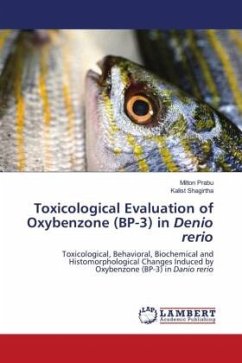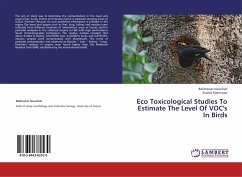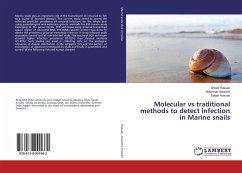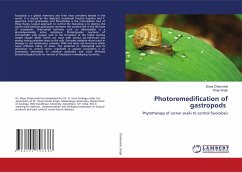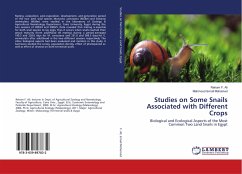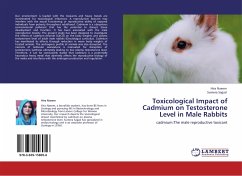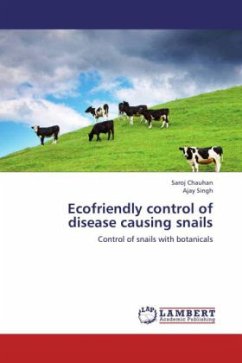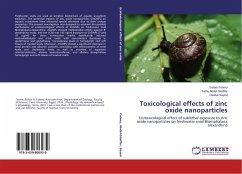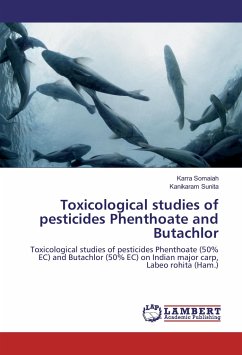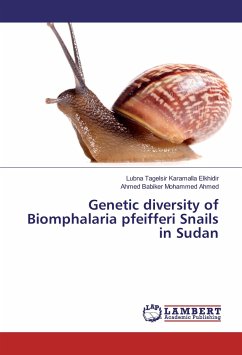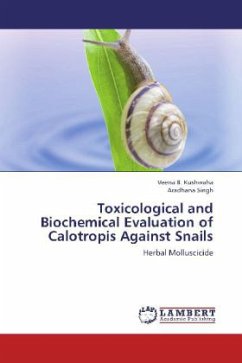
Toxicological and Biochemical Evaluation of Calotropis Against Snails
Herbal Molluscicide
Versandkostenfrei!
Versandfertig in 6-10 Tagen
39,99 €
inkl. MwSt.

PAYBACK Punkte
20 °P sammeln!
Calotropis procera is of the family Asclepiadaceae. It is perennial shrubby tree let with thick cottony tomentose leaves when young and frequently glabrescent when fully developed. C. procera (Ait.) R.Br. commonly known, as Arka is a popular medicinal plant found throughout the tropics of Asia and Africa. Different part of the plant have been advocated for use in many traditional systems of medicine as anticancer, anticoagulant, purgative, anthelmintic, antileprotic, abortifacient etc. The plant has been reported to possess diverse biological as well as pharmacological activities. Different pa...
Calotropis procera is of the family Asclepiadaceae. It is perennial shrubby tree let with thick cottony tomentose leaves when young and frequently glabrescent when fully developed. C. procera (Ait.) R.Br. commonly known, as Arka is a popular medicinal plant found throughout the tropics of Asia and Africa. Different part of the plant have been advocated for use in many traditional systems of medicine as anticancer, anticoagulant, purgative, anthelmintic, antileprotic, abortifacient etc. The plant has been reported to possess diverse biological as well as pharmacological activities. Different parts of the plant have been found to possess proteolytic, antimicrobial, and pesticidal activity, more studies on the way of delivery in environment and mode of action are still recommended for effective control of pest. The book therefore report preparation of extracts prepared from different parts of the plant and their potential as molluscicide against the freshwater snails Lymnaea acuminate and Indoplanorbis exustus, the vectors of Fasciola hepatica and gigantica the causative organisms of fascioliasis in livestock.



